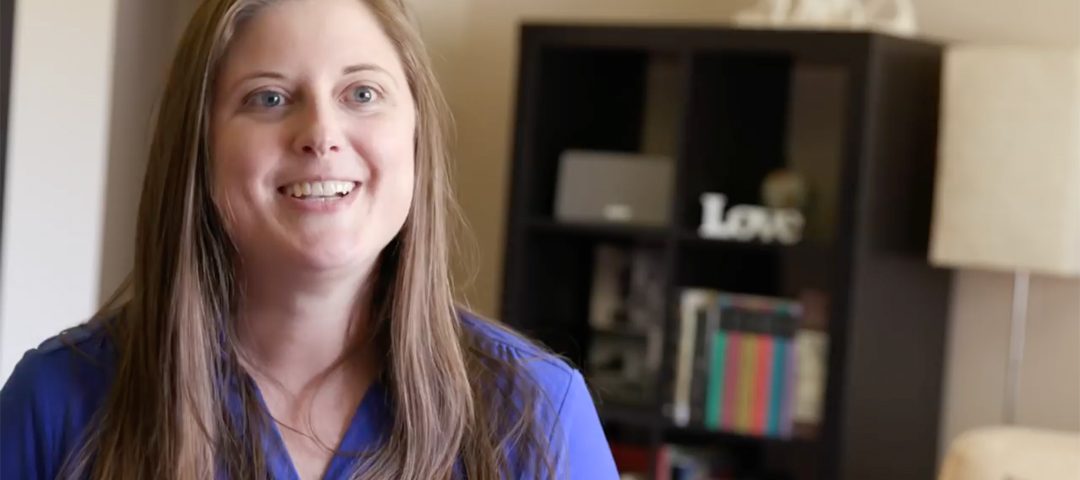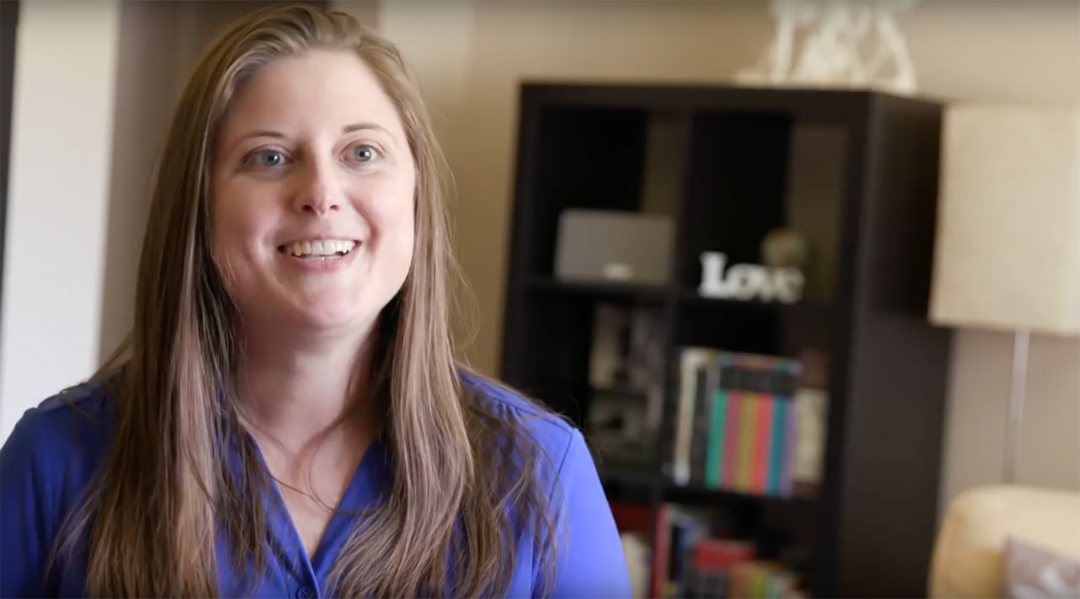By Colleen Tinker
On April 22, just days after the Seventh-day Adventist organization voted an official LGBT positional statement at their annual Spring Council, Alicia Johnston resigned as the sole pastor of the Foothills Community Church in Chandler, Arizona.
While Alicia is not the first “LGBT Adventist to resign from full-time ministry,” she is the first to tell her story in a video she released on Facebook and YouTube.
Significantly, her resignation, as she describes it, is not over “Adventism” but over the Adventist organization’s conservative stance toward LGBT people. (See the article about the official Adventist statement).
Alicia explains that she still sees herself as very Adventist. Her parents were both first-generation Adventists, and she was raised in the Adventist culture. She finds meaning in Adventist theology, especially the Sabbath, and says in her video, “Having been able to live with that bookending every week is a special, special thing.”
She further explains that she is vegetarian and loves quintessentially Adventist food, specifically emphasizing her love of Special-K loaf.
Alicia talked about her dissonance with the Adventist position toward transgenderism. She said she is attracted to both men and women and can see herself married to either. The issue is not biology, she says, but love. She also says she had suppressed her attraction to women, but she finally realized she wasn’t living with integrity to deny her bisexual attractions.
“I knew that shame of feeling inconvenient and like you weren’t a part,” she says on the video. “I couldn’t ignore the fact that our church is causing that [feeling] to people…It really made it difficult for me to feel okay with God.”
Alicia, who has a Master of Divinity degree from Andrews University and worked in the Carolina Conference as a church-planting pastor before moving to take the Foothills Community Church in Arizona, had to shift her theology in order to make this move. She studied many theologians’ viewpoints on this issue and decided that by living in silence, she was both denying her integrity and hurting other Adventists.
The “institutional silence needs to be broken,” she says.
The Arizona Conference Corporation of Seventh-day Adventists, meanwhile “issued a statement calling Johnston a ‘gifted theologian and pastor’” but affirmed its “determination to abide by the stances of the church.”
“‘While the Seventh-day Adventist Church deeply believes it’s our responsibility to minister to all people, we also have a mandate to adhere to all Bible teachings,’ the conference said. ‘Fundamental Belief #23 states: “Marriage was divinely established in Eden and affirmed by Jesus to be a lifelong union between a man and a woman in loving companionship.”’”
Significantly, while the Arizona Conference affirms its adherence to the Adventist organization’s official stance, it nevertheless affirmed Alicia’s position as a licensed female pastor functioning as the sole pastor of an Adventist church.
Adventists voted in 2015 to continue their refusal to ordain women pastors, but several conferences, Arizona being one of them, have continued to employ female pastors while refusing to issue “ordination” credentials, thus technically not violating the church’s stance.
Comments
Alicia Johnston’s torment is real; her video, created by the LGBT-advocating husband-wife team Daneen Akers and Stephen Eyer who also made the movie “Seventh-Gay Adventists”, shows Alicia’s tears and internal angst as she spoke of her frustration with not being able to manage her internal feelings about her own attractions and her frustration with her church’s lack of sympathy for Adventists with gender issues. She also clearly suffered with feelings of guilt and isolation as she attempted to reconcile who she believes herself to be with what she believed was “right”.
Eventually she decided she had to resign her position as paid clergy for an organization that did not support her identity—an identity which she had to hide to keep her role as a pastor.
Her desire for congruity between her internal perception of herself and the image she felt she had to project is commendable. Nevertheless, her conclusions betray the absence of the true gospel which frees “those who through fear of death are subject to slavery all their lives” (Heb. 2:15).
Significantly, it is Adventist culture which shapes Alicia’s identity. Also interesting are the things she mentions as especially significant and defining: the Sabbath and its weekly rhythm, and vegetarianism and Adventist comfort-food. The disjunction between her love of the Adventist culture and her inability to live in it as a fully participating member while embracing her gender identity is the unresolved chord that runs through her entire video.
While many people via social media are affirming her “courage” and “honesty” and “effort to break the silence”, the fact remains that neither Alicia nor Adventism really understands how to make peace with her public identification of herself as bisexual. In fact, the glaring omission in her story is the gospel of the Lord Jesus.
I want to say to Alicia, there IS a way to find resolution in one’s life. The grief and loss and angst and guilt and regret that one may feel has a solution.
That solution requires standing before the cross of the Lord Jesus, as I had to do, where I had to lay down my defenses and self-protection. I had to admit that His word identified me as a sinner who could not avoid sin even by praying. I had to admit that I was unable to please God or to obey Him, as much as I wanted to. I had to admit that even my most earnest efforts to live with integrity were failing. I lived with the constant fear that I was rationalizing in order to believe I was OK—and I deeply knew I was not OK.
I had to admit that even what I considered to be my acts of honesty and integrity were coming from what God’s word identified as sin and the flesh. When I admitted I was a sinner, depraved and unable to avoid sin, only then did Jesus’ sacrifice make sense.
I want to say to Alicia, let God’s word speak the truth to you. It is living and active and sharper than any two-edged sword. It pierces so deeply into us that it—and only it—can divide between our unseen, immaterial parts: our soul and spirit. It can divide both our joints and our marrow—the hidden parts of us even we cannot see. It is able to judge not only our thoughts but also our intentions. God’s word will not lie, and when we let it show us the truth, then we can find resolution. (See Hebrews 4:12.)
I want to tell her, God sees your anxiety and every detail of your life that brought you to this moment. More than that, He saw it when His Son went to the cross, and it was for all the transgressions ever done to you, all the pain you have lived, all the regret and fear you have experienced, that He died. He took the curse of our sin into Himself, and He took the punishment for it. For this reason we can lay down our identities and allow Him to remake us. We can trust the God who loved us that much. We can let Him excise the parts of ourselves we most deeply love and those we most deeply hate. We can trust Him, because He will make us whole and alive in Himself.
Finally, I want to tell Alicia, Adventism is a false hope. Its Sabbath-rhythm and its comfort foods (which I also loved) are deceptions that keep us from seeing the true comfort and reality of the Lord Jesus. You are frustrated as an Adventist because the word of God is missing, and the true Jesus is obscured by traditions. Let God’s word wash you and bring life to you with living truth. Leave behind what you most love about yourself—just as Jesus told the rich young ruler who refused to sell his possessions to follow Him—and receive the amazing gift of Jesus’ death and resurrection. Only then will your life make sense; then you will find peace.
“For we do not have a high priest who cannot sympathize with our weaknesses, but One who has been tempted in all things a we are, yet without sin. Therefore let us draw near with confidence to the throne of grace, so that we may receive mercy and find grace to help in time of need” (Hebrews 4:15-16).
Sources:
SUPPORT PROCLAMATION!
- June 28–July 4, 2025 - June 25, 2025
- We Got Mail - June 25, 2025
- Abortion In Adventism: Why Seventh-day Adventism Promotes Choice - June 22, 2025


Have you sent this to Alicia directly?